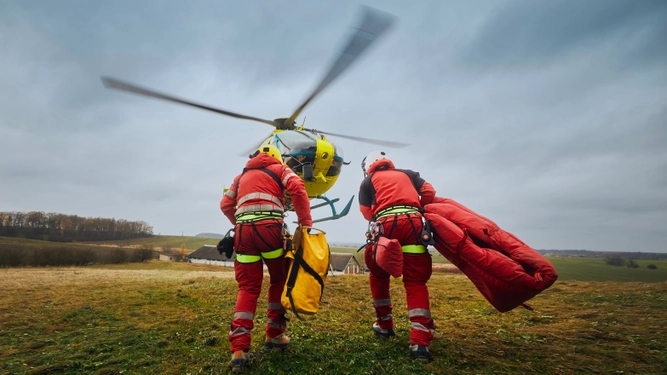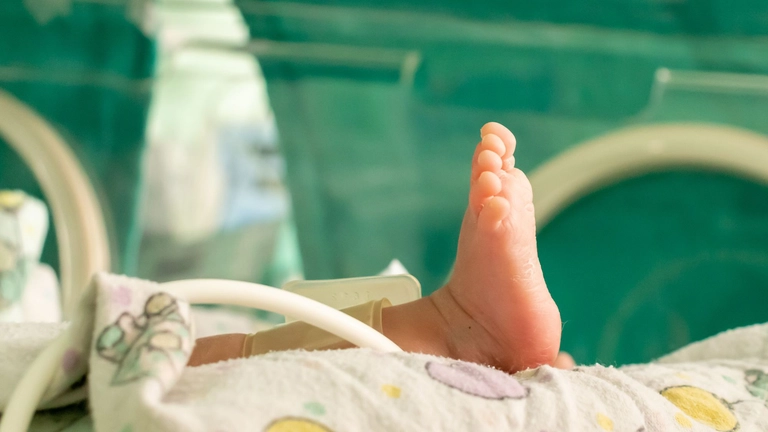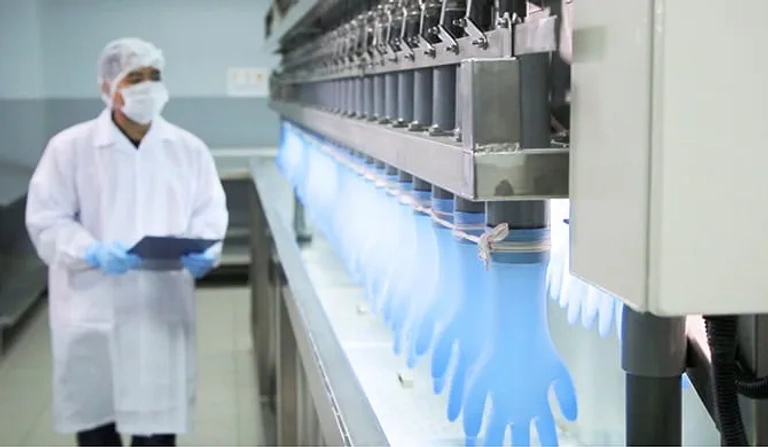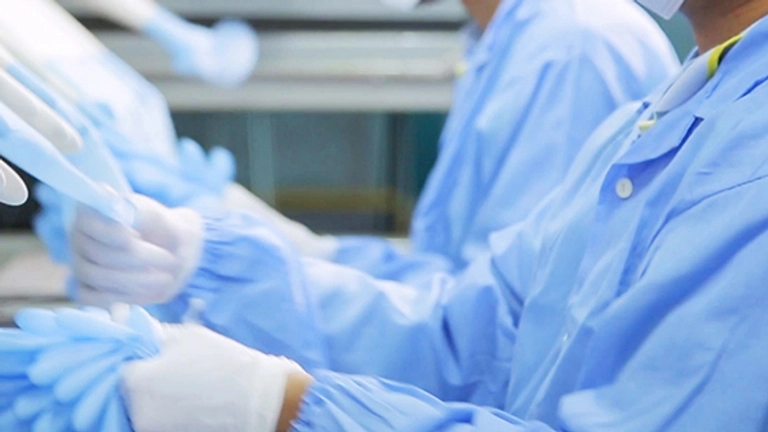
Innovative solution helps rescue services improve patient outcomes
Supporting emergency care personnel in difficult situations is the focus of a project exploring how to combine wearable tech and artificial intelligence (AI). CRS medical, one of Asker’s companies, is one of the partners in the project.
Rescue services teams face many challenges on a daily basis. They never know what they will have to deal with when they go out to help people in an emergency. This can be very stressful, even for an experienced healthcare professional.
A project in Germany has explored the possibility of developing a wearable technology that gives the rescue services team online, real-time guidance. The information they receive draws from different sources, such as dispatch centres and medical devices, and is powered by AI.
Revolutionary combination of AI and wearable technology
By automating the supply of key data and treatment suggestions, the first-aid staff can concentrate more on the patient. This can be particularly important in difficult situations such as mass casualty incidents or in unusual emergencies such as snake bites.
“Combining AI and wearable technology can revolutionise how first aid is administered. One potential future area of application is for pre-clinic care in rural areas. In regions where access to healthcare is limited, wearable technology can play an important role by supporting less experienced colleagues who provide emergency care, and thereby increase the patient's chance of survival”, says Michael Schlapp, Managing Director of CRS medical, one of the project’s partners.
A demo of the future of emergency care
The project began in July 2021 with the design and development of a prototype. This early test version was then continuously improved and finally evaluated in real-life situations.
At the end of the project period in July 2024, the application of the final model showed how the integration of AI and wearable devices can shape emergency care of the future.
“Continued research and development in this area will be critical to further improve the quality of care and set new standards”, says Michael Schlapp.
The project is a joint initiative between CRS medical GmbH, mbeder GmbH (a suppplier of embedded systems), Chair of Embedded Systems (Prof. Dr. Roman Obermaisser) and the Institute for Knowledge-Based Systems and Knowledge Management (Prof. Engineering Madjid Fathi) at the University of Siegen.
Read more about how we contribute

Caring for the tiniest, most vulnerable patients
QRS Healthcare, one of Asker’s companies, played a critical role in the successful implementation of an innovative IV therapy solution at a children’s hospital in the Netherlands.

Better energy efficiency to reduce emissions
In line with Asker’s ambition to support its customers and the healthcare sector in Europe to reduce the climate footprint, Evercare Medical is investigating methods to improve energy efficiency in the manufacturing of examination gloves made from nitrile.

Supporting migrant workers in Malaysia
When Asker began conducting audits of third-party manufacturers in Malaysia and Thailand, the Group identified significant health and safety risks for migrant workers employed in glove manufacturing facilities. Since then, several important steps towards better conditions have been taken.
